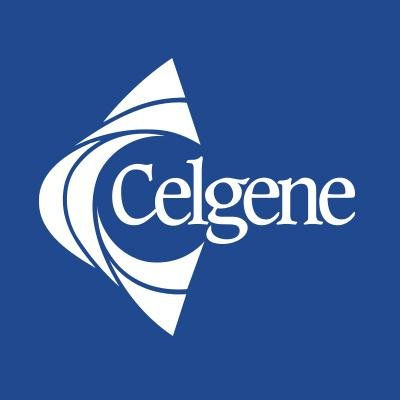预约演示
更新于:2025-08-29

3SBio, Inc.
更新于:2025-08-29
概览
标签
免疫系统疾病
肿瘤
泌尿生殖系统疾病
单克隆抗体
小分子化药
生物类似药
疾病领域得分
一眼洞穿机构专注的疾病领域
暂无数据
技术平台
公司药物应用最多的技术
暂无数据
靶点
公司最常开发的靶点
暂无数据
| 排名前五的药物类型 | 数量 |
|---|---|
| 单克隆抗体 | 24 |
| 小分子化药 | 8 |
| 生物药 | 7 |
| 双特异性抗体 | 7 |
| 生物类似药 | 7 |
关联
73
项与 三生制药公司 相关的药物靶点 |
作用机制 AR拮抗剂 |
在研机构 |
非在研适应症- |
最高研发阶段批准上市 |
首次获批国家/地区 美国 |
首次获批日期2020-08-26 |
靶点- |
作用机制- |
在研机构 |
原研机构 |
在研适应症 |
非在研适应症- |
最高研发阶段批准上市 |
首次获批国家/地区 中国 |
首次获批日期2018-11-12 |
靶点 |
作用机制 PDE4抑制剂 |
在研机构 |
原研机构 |
最高研发阶段批准上市 |
首次获批国家/地区 美国 |
首次获批日期2014-03-21 |
145
项与 三生制药公司 相关的临床试验NCT07022002
A Phase II Study to Evaluate the Safety and Efficacy of SSGJ-705 Monotherapy and Combination Therapy in Patients With Advanced HER2-Expressing Solid Tumors
This study was an open-label phase Ⅱ study to evaluate the safety and efficacy of SSGJ-705 Monotherapy and Combination Therapy in patients with advanced HER2-Expressing Solid Tumors.
开始日期2025-07-30 |
申办/合作机构 |
NCT07065136
A Randomized, Double-Blind, Placebo-Controlled, Single Ascending Dose and Multiple Ascending Dose Phase I Clinical Study to Evaluate the Safety, Tolerability, Pharmacokinetics and Immunogenicity of SSGJ-627 in Healthy Adult Subjects
This is a randomized, double-blind, placebo-controlled, single ascending dose and multiple ascending dose phase I clinical study to evaluate the safety, tolerability, PK and immunogenicity of SSGJ-627 in healthy adult subjects after single subcutaneous injection.
开始日期2025-07-20 |
申办/合作机构 |
NCT07032298
Phase I Clinical Study on the Safety, Pharmacokinetics and Antitumor Activity of SSGJ-612 in Patients With Advanced Solid Tumors
This study is an open-label phase I study to evaluate the safety, pharmacokinetics, and antitumor activity of SSGJ-612 in patients with advanced malignant solid tumors expressing HER2.
开始日期2025-07-18 |
申办/合作机构 |
100 项与 三生制药公司 相关的临床结果
登录后查看更多信息
0 项与 三生制药公司 相关的专利(医药)
登录后查看更多信息
15
项与 三生制药公司 相关的文献(医药)2025-04-01·JOURNAL OF IMMUNOLOGICAL METHODS
The generation of a novel HER2-targeting nano PE25 immunotoxin with superior anti-tumor activity and high productivity
Article
作者: Chen, Xianfei ; Wan, Yibin ; Ren, Xiu ; Guo, Zhenhua ; Xiao, Jianguo ; Huang, Haomin
Immunotoxins have the potential to be developed into anti-tumor drugs due to their targeting and strong tumor-killing activity. However, at present, issues such as dose limitations due to off-target toxicity and immunogenicity hinder the clinical use of immunotoxins. A novel HER2-targeted immunotoxin F02 was devised in this study. F02 links an anti-HER2 single-domain camelid antibody to a domain III mutant of PE toxin via a cleavable linker. The PE domain III mutant has seven point-mutations, which potentially remove B-cell and T-cell binding epitopes, thus reducing immunogenicity risks. F02 maintains anti-tumor activity in vivo and in vitro. In animals, F02 effectively inhibited the growth of NCI-N87 tumors at 1.0 mg/kg, and showed a dose-effect relationship, as the effect of completely removing tumors could be achieved at doses above 2.5 mg/kg. F02 also has low toxicity. In cynomolgus monkey models, good tolerability was observed even at 5 mg/kg, a much higher dose than the effective dose. In addition, the molecule has good druggability and can achieve soluble expression in E. coli with a high expression level. Thus, this new molecule has the potential to become a new option for treatment of HER2-positive tumors.
2025-04-01·Dermatology and Therapy
Efficacy and Safety of 611 in Chinese Adults with Moderate-to-Severe Atopic Dermatitis: Results from a Phase II Trial
Article
作者: Duan, Xinsuo ; Feng, Yanyan ; Ji, Mingkai ; Liu, Lunfei ; Ding, Yangfeng ; Wu, Liming ; Xu, Yuyu ; Huang, Haomin ; Zhang, Jianzhong ; Zhang, Litao ; Li, Jianguo ; Zhou, Qinghong ; Zhu, Jianjian ; Yang, Bin ; Hu, Guohong ; Zhao, Yan ; Ji, Chao ; Xiao, Rong
INTRODUCTION:
Atopic dermatitis (AD) is a chronic inflammatory skin disease. 611, a humanized monoclonal antibody, selectively targets the interleukin (IL)-4 receptor alpha, thereby inhibiting the signaling of both interleukin (IL)-4 and IL-13. This phase 2 study aimed to evaluate the efficacy and safety of 611 in Chinese adults with moderate-to-severe AD.
METHODS:
This randomized, double-blind, placebo-controlled phase 2 study was conducted between October 2022 and September 2023. Eligible patients with moderate-to-severe AD were randomly assigned in a 1:1:1 ratio to receive 611 at a dose of either 300 mg (loading dose of 600 mg) every 2 weeks (Group A) or 300 mg (loading dose of 600 mg) every 4 weeks (Group B), or placebo every 2 weeks for 16 weeks, followed by an 8-week follow-up period. The primary efficacy endpoint was the proportion of patients achieving at least a 75% reduction in the Eczema Area and Severity Index (EASI-75) score at week 16. The safety and pharmacodynamics were also assessed.
RESULTS:
After 16 weeks of treatment, 60.0% of patients in Group A and 48.8% in Group B achieved EASI-75, both significantly higher than the placebo group (15.6%, p < 0.01). Additionally, 611 at both doses significantly improved the Investigator's Global Assessment (IGA) scores, peak pruritus numerical rating scale (NRS), and other efficacy endpoints. Patients receiving 611 demonstrated significant reductions in serum thymus activation-regulated chemokine (TARC) and total serum immunoglobulin E (IgE) levels. The incidence of treatment-emergent adverse events (TEAEs) was similar across all dosage groups. The most common 611-related TEAE is upper respiratory tract infections. No new safety concerns were identified.
CONCLUSION:
611 demonstrated a high efficacy and a favorable safety profile in patients with moderate-to-severe AD.
TRIAL REGISTRATION:
ClinicalTrials.gov, NCT05544591.
2025-01-01·EUROPEAN JOURNAL OF PHARMACOLOGY
An antibody against human interleukin-2 showing minimal binding to neonatal Fc receptor: Potent anti-tumor activity and reduced systemic toxicity in mice
Article
作者: Lv, Yunying ; Wang, Chao ; Lou, Jing ; Chen, Jianhe ; Jin, Zheng
The anti-tumor efficacy of immune checkpoint inhibitors can be enhanced by combining them with interleukin-2 (IL-2), which promotes the clonal expansion of antigen-activated CD8+ T cells and natural killer cells. However, IL-2 can simultaneously bind to endothelial cells and regulatory T cells to induce adverse and immunosuppressive effects. Such off-target binding can be inhibited by co-administering IL-2 with anti-IL-2 antibodies, but these antibodies can interact with neonatal Fc receptor to protect the IL-2 from lysosomal degradation, leading to substantial toxicity. Here we developed and humanized a mouse monoclonal antibody against human IL-2 and introduced two mutations (H310A and H435Q) in the Fc segment in order to weaken binding to the neonatal Fc receptor. The humanized antibody bound tightly to IL-2 but minimally to neonatal Fc receptor. Hydrogen deuterium exchange mass spectrometry indicated that the antibody binds to IL-2 at the site where the cytokine binds to subunit α (CD25) of the trimeric IL-2 receptor. Co-administering the antibody with human IL-2 improved the cytokine's ability to slow growth of two types of colorectal tumor xenografts (CT26, MC38) in immunocompetent mice. Co-administration to mice with CT26 xenografts strongly expanded CD8+ T cells, without expanding regulatory T cells in spleen or blood. Co-administration to mice with MC38 xenografts downregulated PD-1 and CD44, while upregulating CD62L and CD69, on tumor-infiltrating CD8+ T cells. Notably, co-administration synergized with anti-PD-1 antibody to slow growth of MC38 xenografts. Our results suggest that the combination of human IL-2 and our novel antibody shows promise for providing more effective, less toxic cancer immunotherapy.
3,035
项与 三生制药公司 相关的新闻(医药)2025-08-29
·动脉网
当医疗资产批上区块链数字化外衣,企业该如何匹配这一浪潮?
近期,国内多家医疗企业尝试将自身资产通过RWA模式进行代币化发行,从而探索融资新路径。如7月底,华检医疗陆续发布多份公告宣布推进医疗创新药RWA交易所生态及配套稳定币体系;8月,翰宇药业、百诚医药和贝瑞基因也陆续宣布探索RWA模式应用。
企业公告探索RWA,图源企业官网
RWA(Real World Assets,现实世界资产)在2017年就已出现,最早是用于解决传统金融资产“流动性差”的金融工具,从早期将股票、债券塞入区块链到后来将房地产、新能源充电桩等资产进行数字化上链,直至2024年底,马陆葡萄RWA项目成功落地,成为国内首个农业品牌RWA项目。
如今,RWA的风吹到了医疗大健康产业。
据翰宇药业发布的公告,此次RWA项目的探索绑定的底层资产是管线的未来收益权,也就是翰宇旗下核心GLP-1管线未来收益权被转换为数字资产,然后被拆分成若干小份依托稳定币供全球投资者认购和交易,这样的模式让企业融资从“卖股份”转变成“卖权益”,实现了研发价值与资本市场价值链条的重塑。
当生物制药领域的创新者们还在实验室中探索下一个革命性分子时,一场深刻的资本与数字信任体系的变革已经悄然发生。
01
时间,RWA兴起的核心逻辑
今后是否不用再和时间做朋友?
RWA通过区块链技术将实体医疗资产代币化,是一次从传统融资模式向权益期权化模式转变的尝试。如能走通,不仅能解决医疗行业长期存在的“融资难、融资贵”问题,更有望通过技术驱动实现资本配置效率质的飞跃。
RWA的本质是希望用区块链和资产碎片化方式解决行业流动性枯竭的困局。
以医疗器械企业为例,由于传统的融资结构相对单一,而医疗器械行业具有“技术密集+资金密集”的双重属性,不仅研发周期长、资金需求大、生产线复杂,且需通过多项严格认证。这就决定了械企必然会有一定的固定资产(如厂房、设备)和长期研发资金投入。尽管不如传统制造业如汽车产业那么“重”,但也算得上是“中重资产”模式。
医药行业虽然相对较轻,但动辄10亿美元的研发投入、平均10年的研发周期和不到10%的成功率,使得每家企业都如高空走钢丝一般如临深渊。License-out模式的出现,让药企有了提前回收资金的渠道,但对Biotech而言并不足够,自身还将长期处于流动性枯竭的困局。此外,License-out模式中,海外药企对于管线估值的压价也是真实存在的。
可以看到无论是器械还是医药,在传统融资模式下,过长的发展周期和资金回流路径加剧了企业运营风险。RWA模式的创新价值不仅在于保留IP所有权的基础上拓宽了企业融资的渠道,更重要的是快速回流的资金有望推动企业更快进入下一个阶段,从而缩短企业的发展周期。
此模式必然会对创新医疗企业形成天然的吸引力,只是这套打法对医疗企业的要求和过去以研发为主导的方式颇有不同。
02
什么样的资产适合RWA
RWA模式能够直观的检验医疗资产的成色。
目前,在香港地区被认可的RWA资产大致可以分为四类:固定收益类、可量化能源类、实物金属类和版权品牌类。其中,适合医疗资产的类别主要是固定收益类和版权品牌类。
据翰宇药业的公告,其RWA项目锚定的底层资产主要包括三个方面,首先是GLP-1相关产品。如与Hikma和Mullan合作享有50%分成的利拉鲁肽美国首仿药,和三生蔓迪合作的司美格鲁肽注射液(减重适应症),以及利用AI多肽芯片技术筛选出的GLP-1R/GIPR/GCGR三靶点受体激动剂HY3003(开发方向包括周制剂、超长效月制剂、口服制剂);其次是数十项在研管线;最后是覆盖全球20多个国家的供应网络。
另一方面,据翰宇药业发布的半年报显示,其2025H1营收5.5亿,同比增长114.86%;实现净利润1.45亿元,较去年同期大幅增长1504.3%。也就是说,翰宇药业此次锚定的底层资产已产生或即将产生更多可预测现金流,具备稳定性收益的特点。
对企业而言,选择一个合适的项目并不容易,由于RWA模式面向的是社会大众,那么项目如何打动投资群体就是关键。翰宇药业作为首个吃螃蟹的,选择了大众耳熟能详的GLP-1项目为核心资产,不得不说是一步好棋,既有司美格鲁肽崛起带来的想象空间也省去了市场教育环节。
然而,能达到类似效果的项目并不算多,即便是近期爆火的PD-(L)1双抗,也会面临国产管线的激烈竞争,该如何操作才能让市场认可其前景?更何况还有为数不少的小众赛道。这些管线的市场空间相对大适应症来说,天花板较低。这些管线如果走版权品牌类资产的路子,那如何确定估值又是一大问题,RWA模式如何为这类资产进行赋能尚待观察。
从审批通过率和实施可行性来推测,适合RWA的医疗资产,应具有价值可衡量、能产生现金流、且在传统金融市场存在明显流动性或效率瓶颈的特点。
虽然从理论上来说,研发管线收益权(按临床阶段和市场空间定价)、医疗器械设备的所有权(耗材和服务收益、租金收益权)以及数据资产(如脱敏临床数据池),都可以成为RWA锚定的资产,但从实操角度来看依然存在很多模糊地带。
不管是研发管线收益权还是医疗器械未来收益权,相较可量化的能源资产(如每度电的价格)或是实物金属(稀有金属成熟的价格体系),都有估值不被大众认可的缺点。也就是说,要走RWA这条路,在研发能力之外,医疗企业尚需建设更多与之匹配的能力。
03
RWA模式倒逼企业能力升级
应对新模式,必然要构建新的能力。
简单来说,是否具有资产运营能力、金融工程与合规能力以及数据可信技术能力决定了企业是否能够走通RWA模式。
资产运营能力很容易理解,如何精准识别出真正能获得市场认可的资产,并进行公允、透明的估值,以合理的定价吸引投资者。过去,企业更多注重的是研发能力的建设,在这方面建设不足,然而在产业链上,有这样一个角色非常精通资产的估值,那就是投资机构。
RWA模式的出现虽然引入了新的融资渠道,但对于投资机构而言并非是一件坏事,作为现有生态的有力补充,具有专业能力的投资机构可以为这个新的生态提供诸多帮助,如和企业一起精准判断哪些管线、哪些阶段的资产适合进行RWA,提供专业资产筛选与估值服务、围绕不同资产设计的金融产品与流动性方案等。这样一来,也为投资机构新增了RWA的退出路径。
金融工程与合规能力则是需要建立一个合规的交易架构。
以当前在香港地区已经公布实施的项目为例,基于内地监管合规要求,现有内地企业赴港发行RWA的项目通常建立在“境内资产SPV+境外/香港SPV”双层SPV架构的基础上,通过“资产链+交易链”的技术方式实现发行目标。
香港地区发行RWA项目的交易架构,根据公开信息收集整理
可以看到这是一个高度复杂的跨领域工程,大多数医疗企业都无法独立完成,因此,需要企业具备广泛连接外部合作伙伴如区块链技术提供商、交易所、律所、审计机构、托管方、等多个不同类型机构打交道的强大合作与管理能力。只有这样,才能打破信息孤岛、整合资源建立起合规的新生态。
RWA发行过程中一些重要节点,据公开信息收集整理
此外,更重要的是数据能力。从整个RWA模式运作流程来看,信任的基础在于数据可信,如果只是将线下已有的数据转写上链,那么资产数据的真实性则无法验证,现金流的流向也难以追溯,RWA生态的健康发展更是无从谈起。
以创新药研发为例,过程涉及临床前研究、提交IND、完成特定阶段临床试验、获得NDA/BLA批准、达到销售目标等多个涉及权益分配的环节,这些里程碑节点在传统模式下有明确的、可验证的达成标准,但如何转换到链上的同时又保证其隐私性,暂且没有一个标准的解决方案。
比如链上能否实时、准确地记录真实世界资产的状态变化;收益分配、本金返还、违约处置、费用结转等资金流转能否自动执行、不可篡改且公开透明。如何去构建完善的可信数据空间以及智能合约的设计都是企业必须要解决的问题。
对医疗企业而言,这方面能力是过去业务发展过程中不会涉及的,特别是创新药研发过程中不同阶段的临床结果,或者是器械设备的阶段性收益,如何能够保证数据流或资金流自动上链?相较其他行业如新能源,医疗行业如何去做,还有一个漫长探索的过程。
从此次翰宇药业与KuCoin平台的合作来看,KuCoin扮演的并非只是一个简单发行方的角色,而是一个辅助翰宇药业建设RWA生态的角色。比如资产的确权、关键里程碑转化为可编程收益权的链上映射、收益分配智能合约的建立和执行以及交易撮合等。
现阶段,中国医疗企业确实需要这样一个桥角色帮助自己。就在前几天,杭州百诚医药也与香港地区金融科技及RWA服务提供商深石科技签订意向合作协议,共同探索医药产业与数字资产技术结合的RWA新型金融模式。
整体来看,RWA发行过程涉及复杂的法律合规、技术实现和金融运作。企业需要体现出自身的生态拓展能力。
04
RWA时代的“卖水人”
有的企业选择借助新生态融资,也有企业选择借助新生态转型。
如果仅仅把华检医疗对于RWA的探索看作是绑定其IVD设备未来收益权,那显然小看了其战略转型的野心。结合其近期发布的几则公告以及一些动作来看,华检医疗对于RWA模式的期望不止于此。
首先,华检医疗正在搭建“IVDNewCo Exchange”交易所,专注于创新药资产的代币化交易,并计划发行配套稳定币IVDDollar(IVDD),这一步的目的在于为医疗RWA项目合规地实现去中心化流动。
其次,华检医疗还在美国纽约成立全资子公司IVD GROUP,同步启动向SEC、CFTC提交稳定币牌照申请。最后,华检医疗也在香港地区积极参与金管局稳定币沙盒计划,测试储备资产管理与跨境支付场景,为“稳定币发行、交易平台”双牌照的申请铺路。同时,因为香港地区监管对储备资产抵押有一定要求,所以华检医疗发布公告计划购买以太坊加密币用于建设以太坊储备金库。
围绕创新药知识产权变现这一核心诉求,华检医疗希望用以太坊作为底层资产来为RWA项目提供价值锚定,也会通过质押收益来反哺金库规模。同时,若能以两地的监管背书消除信任问题,那么这套打法的前景将相当可观。
华检医疗一上来就All in的态势打动了市场,自消息公布以来,股价涨幅超360%,更有早市开盘暴涨53.9%的时刻,市场似乎对这个计划很感兴趣。从整个运作逻辑来看,华检医疗希望RWA服务于医疗产业链中形成闭环,无论是单纯的垂直行业稳定币、RWA+稳定币支付中台、抑或是离岸合规桥接服务商都是可以发展的方向。
作为国内首批涉足RWA的医疗企业,华检医疗敏锐的捕捉到RWA模式对医疗产业的天然吸引力,并且判断出新的生态中需要一个“卖水人”的角色。和其他产业不同,医疗产业具有自身的复杂性和特殊性,按照此前RWA为其他垂直行业赋能过程中所得的经验无法直接套用,需要一个熟悉产业的企业来加速RWA模式的落地。华检医疗的此番出手可谓瞄准了问题的核心,未来能否凭借先发优势占据这一生态位尚待观察。
RWA在医疗行业的集中爆发并非偶然,这是底层金融基础设施建设与行业紧迫需求之间形成的共振。与其说RWA是在构建新的医疗产业生态,不如说是RWA对医疗产业的赋能过程在倒逼企业升级自身全球化的能力。企业的发展最终要面临全球市场的检验,在未来的竞争中,拥有强大数据驱动内核、积极拥抱数字化发展、并善于利用RWA拓展全球资本与协作生态的项目,将更有可能在效率与信任的竞争中赢得先机。
*封面图片来源:123rf
如果您认同文章中的观点、信息,或想进一步讨论,请与我们联系;也可加入动脉网行业社群,结交更多志同道合的好友。
近
期
推
荐
声明:动脉网所刊载内容之知识产权为动脉网及相关权利人专属所有或持有。未经许可,禁止进行转载、摘编、复制及建立镜像等任何使用。文中如果涉及企业信息和数据,均由受访者向分析师提供并确认。
动脉网,未来医疗服务平台
IPO引进/卖出并购
2025-08-28
·赛柏蓝
作者 | 凯西
编辑 | 郑瑶
华润三九“米诺地尔搽剂”获国家药监局批准上市,华润三九将“米诺地尔搽剂”定位为其自我诊疗“A”计划的重要品种。
01
“头上生意”玩家云集
先后拿下米诺地尔搽剂批文的还有新华制药,截至目前“米诺地尔搽剂”相关批文已达70条,市场开始变得拥挤。
其他获批的剂型还包括,山东博士伦福瑞达制药的米诺地尔凝胶,山东京卫制药的米诺地尔喷雾剂,浙江三生蔓迪、厦门美商医药的米诺地尔酊,浙江三生蔓迪的米诺地尔泡沫剂;两个原料药批文则分别由常州四药、天津药物研究院持有。
来自米内网的数据显示,2023年米诺地尔销售额合计超过25亿元,从不同剂型的表现来看,三生蔓迪的米诺地尔酊已是10亿级大品种;销售额第二位的是振东安欣生物制药的米诺地尔搽剂,超过3亿元;厦门美商医药米诺地尔酊超过2亿元,以及三生蔓迪的米诺地尔泡沫剂已过1亿元,其余企业的市场份额较小。
不过,华润三九布局米诺地尔的逻辑相对清晰。
“999皮炎平”本身已是国内皮肤外用药的领导品牌,无论是在皮肤科产品的研发、品牌运营还是市场推广上,华润三九都经验丰富。
更不用说米诺地尔是一个80%以上的市场份额都在零售渠道的品牌,截至2024年底,华润三九的CHC健康消费品业务覆盖全国超过60万家药店。2024年,全国药店数量达68.37万家,也就是说华润三九的药店覆盖率接近88%,渠道优势显而易见。
线上布局方面,华润三九的线上业务占比达10%,合作平台包括阿里、京东、美团、饿了么,其中O2O占比高于B2C业务,线上更是米诺地尔的最主要销售渠道。
02
密集拓展管线的华润三九
2025年上半年,华润三九营收148.10亿元,同比增长4.99%;实现归属于上市公司股东净利润18.15亿元,同比下降24.31%——具体来看,2025年上半年CHC健康消费品业务营收79.94亿元,同比下降17.89%,占总营业收入的53.98%;处方药业务营收48.38亿元,受天士力并表影响,同比增长100.2%。
不同于收购带来增长的处方药业务,华润三九CHC健康消费品业务面临的是如何保持高速增长的压力。
CHC始终是华润三九的核心业务,华润三九提出“全域布局、全面领先”战略,在呼吸、皮肤、胃肠品类,骨健康品类,大健康领域维矿、小儿等品类布局外,探索布局“远虑近忧”的亚健康领域新品(如滴眼液、睡眠相关品种等)。
以呼吸品类为例,华润三九从感冒逐步拓展到呼吸品类,包括止咳、润鼻等品种;同时积极布局哮喘、慢阻肺等医疗端市场产品。
先后收购昆药、天士力之外,华润三九自身也在进行管线拓展,包括细胞治疗赛道的HiCM-188项目,减重和2型糖尿病领域与博瑞医药合作的BGM0504,以及从境外引入并拥有大中华区独家权益的脑胶质瘤治疗药物ONC201等。
就未来的BD方向,华润三九表示,在创新药领域会紧密围绕战略方向,兼顾消费健康赛道;沿着战略方向,CHC核心领域关注新品牌、新产品、新技术, 处方药关注高临床价值的产品和业务,并持续推动BD合作。
03
米诺地尔市场的双强分立
米诺地尔作为一款上市30多年的“老药”,近几年在中国市场才开始焕发光彩,与之相伴的是脱发焦虑的年轻化与普遍化和社交媒体与电商平台的全面崛起。
米诺地尔是临床最常用的脱发治疗药物,也是全球唯一获美国FDA及国家药监局批准上市的用于治疗男女脱发的外用非处方药物。
1988年美国FDA正式批准外用米诺地尔溶液用于治疗雄激素性脱发(AGA)。2001年,原浙江万晟药业率先将5%浓度的米诺地尔酊剂引入中国。
蔓迪是国内首款上市的外用米诺地尔产品,主要用于治疗雄激素性脱发和斑秃。这一前瞻布局直接使得毛发皮肤领域成为其母公司三生制药四大支柱领域之一。
据卫健委统计,2022年国内脱发人群人数已超2.5亿,其中男性约1.6亿,女性0.9亿,且60%的人在25岁就出现脱发现象。
米诺地尔近年来销售规模稳步攀升,2020-2023年均保持两位数及以上的同比增速。目前,在网上药店和城市实体药店渠道,三生蔓迪的米诺地尔均居榜首。
2024年,三生蔓迪推出起效更快的米诺地尔泡沫剂,随后又于2025年推出具有独特防脱固发功效的洗发水。
资料显示,三生蔓迪已覆盖超2,000家医疗机构和近100,000家零售药店。线上渠道包括阿里、京东等电商平台,并持续向抖音、小红书等新电商平台扩展。电商平台已经成为蔓迪主要的销售渠道——2022年,蔓迪的电商收入占比约为60%,同比增长约58%;零售药店收入占比25%,同比增长约65%;医疗机构收入约占14%,同比增长约2%。
三生蔓迪表示,在中国内地2.5亿脱发人群中,目前蔓迪渗透率仍处于较低水平。
近年势头较猛的还有振东制药,振东制药通过推出不同浓度的男女款包装进行差异化竞争,振东制药的达霏欣在2019年-2022年以复合增长率59%的成绩高速推进,2023年销售额达5.34亿元。
2024年,振东制药的新品生发片及生白颗粒上市销售,其中生发片与达霏欣米诺地尔搽剂形成内服外用协同治疗方案,产品组合优势增强,新品生白颗粒快速推进全国市场覆盖,已完成28个省份挂网工作。
据悉,振东制药已经申报米诺地尔原料药、泡沫剂项目,其中振东制药的米诺地尔泡沫剂预计2026年获批。
此外,拜耳、欧加隆中国、福元医药全资子公司福元药业、康恩贝、鲁南制药的产品也均已上市。随着更多厂家的入局,新进入者可能通过价格、剂型创新(以改善使用体验、减少副作用、提升药物渗透效率等)或更灵活的营销策略来抢占市场份额。
脱发治疗市场已相当拥挤,不仅有成熟的药品(如蔓迪、达霏欣),还有一众后来者,华润三九的米诺地尔凭借品牌优势、渠道优势将交出怎样的市场表现?
值得一提的是,脱发产品对社交媒体营销、KOL种草等模式的依赖度更高,而这显然与华润三九传统的营销模式存在差异,其可能需要在营销策略和团队建设上进行创新与调整。
END
内容沟通:13810174402
商务合作:13810647732
2025-08-28
·同写意
2025年8月28日,苏州血霁生物科技有限公司(以下简称“血霁生物”)所提交的“巨核细胞注射液”新药临床试验申请(IND)获得中国食品药品监督管理局药品审核中心(CDE)的正式批准!
这是全球首个同种异体的巨核细胞注射液的正式临床试验申请,为血霁生物自主研发的巨核细胞系列产品的第二个产品,适应症为肿瘤治疗引起的血小板减少症,这将是现有的升板药治疗和血小板输注的巨大补充,有望为每年几千万人次的血小板减少症人群带来新希望,具有重要的社会价值和经济价值。这也是继血霁生物在FDA获批IND的“自体巨核细胞注射液”之后第二款获批正式临床的产品,体现了血霁生物在本领域里保持的遥遥领先、甚至是唯一的地位,将中国的人工造血事业推到了国际领军地位。
血霁生物重磅推出的“隐身管线”之二——全球首个用于血小板数量回升的同种异体巨核细胞注射液,具备成本低、安全性高、无任何基因编辑、疗效久和无明显副作用的特点。根据血霁生物的战略布局,本品将以最快的速度在中国开展临床试验,以期在两年内成为第一个获得药品上市许可的巨核细胞注射液,进入全球百亿美金的升板药市场的竞争。血霁生物将持续通过不同的产品品类覆盖用血人群的不同需求,带来第二次输血革命。
同时欢迎肿瘤治疗引起的血小板减少症的病人积极参与正式临床试验,助力全球第一款持续升板的细胞新药迅速问世!
关于血霁生物
血霁生物于2021年6月成立于苏州工业园区生物医药产业园,是由海归专家创立的体外再生造血世系(包括血液细胞和免疫细胞)的新型细胞治疗企业,具有独特的干细胞重编程、编辑和分化技术,以血小板的体外再生作为做优先和核心发展的方向,切入成体干细胞和iPSCs细胞定向分化的细胞治疗领域。
关于同写意
同写意论坛是中国新药研发行业权威的多元化交流平台,二十一年来共举办会议论坛百余期。“同写意新药英才俱乐部”基于同写意论坛而成立,早已成为众多新药英才的精神家园和中国新药思想的重要发源地之一。同写意在北京、苏州、深圳、成都设立多个管理中心负责同写意活动的运营。
尊享多重企业/机构会员特权
● 分享庞大新药生态圈资源库;
● 同写意活动优享折扣;
● 会员专属坐席及专家交流机会;
● 同写意活动优先赞助权;
● 机构品牌活动策划与全方位推广;
● 秘书处一对一贴心服务。
入会请联系同写意秘书处
同写意创新链盟机构
(上下滑动查看更多)
瀚枢生物 | 深势科技 | 新天地药业 | 快舒尔医疗 | 华赛伯曼 | 艾里奥斯 | 药明合联 | 皓元医药 | 希格生科 | 纽瑞特医疗 | 夸克医药 | 石药集团 | 源生生物 | 君赛生物 | 达尔文生物 | 浩博工程 | 怀雅特 | 赛立维 | 科伦博泰 | 赛隽生物 | 安升达/金唯智 | 卡替医疗 | 达科为生物 | 沙利文 | 天广实 | 拜耳 | 楚天科技 | 三生制药 | 三启生物 | 国通新药 | 通瑞生物 | 科济药业丨立迪生物 | 森西赛智 | 汇芯生物 | 申科生物 | 方拓生物 | 东抗生物 | 科盛达 | 依利特 | 翊曼生物丨锐拓生物丨复百澳生物丨圆因生物丨普洛斯丨华润三九丨皓阳生物丨人福医药丨广生堂药业丨澳宗生物丨妙顺生物 | 荣捷生物丨行诚生物 | 宜联生物 | 生命资本 | 恒诺康丨斯丹姆 | 益诺思 | 深圳细胞谷丨佰诺达生物 | 沃臻生物 | 金仪盛世 | 朗信生物 | 亦笙科技 | 中健云康 | 九州通 | 劲帆医药 | 沙砾生物 | 裕策生物 | 同立海源 | 药明生基 | 奥浦迈 | 原启生物 | 百力司康 | 宁丹新药 | 上海细胞治疗集团 | 滨会生物 | FTA | 派真生物 | 希济生物 | 优睿赛思 | 血霁生物 | 优睿生物 | 邦耀生物 | 华大基因 | 银诺生物 | 百林科医药 | 纳微科技 | 可瑞生物 | 夏尔巴生物 | 金斯瑞蓬勃生物 | 健元医药 | 星眸生物 | 格兰科医药 | 莱羡科学仪器 | 明度智云 | 玮驰仪器 | 康源久远 | 易慕峰 | 茂行生物 | 济民可信 | 欣协生物 | 泰楚生物 | 泰澧生物 | 谱新生物 | 思鹏生物 | 领诺医药 | 宜明生物 | 爱科瑞思 | 阿思科力 | 博格隆生物 | 百吉生物 | 迈邦生物 | 多宁生物 | 万邦医药 | ASCT | 为度生物 | 比邻星创投 | 赛桥生物 | 吉美瑞生 | 荣泽生物 | 科金生物 | 汉超医药 | 康日百奥 | 汉腾生物 | 力品药业 | 安必生 | 博瑞策生物 | 中盛溯源 | 深研生物 | 东方略 | 赛赋医药 | 克睿基因 | 安润医药 | 镁伽科技 | 科锐迈德 | 和元生物 | 申基生物 |楷拓生物| 森松生命科技 | 凯理斯 | 尚德药缘 | 晟国医药 | 健新原力 | 纽福斯 | 华东医药 | 士泽生物 | 影研医疗科技 | 新格元生物 | 依生生物 | 腾迈医药 | 汉欣医药 | 恒驭生物 | 盛诺基 | 序祯达生物 | 乐纯生物 | 速石科技 | 耀海生物 | 新合生物 | 华龛生物 | 恺佧生物 | 成都凡微析 | 正帆科技 | 大橡科技 | 博雅辑因 | 因美纳 | 博雅控股集团 | 近岸蛋白 | 依科赛生物 | 利穗科技 | 东南科仪 | 倍谙基 | 辉诺医药 | 圣诺制药 | 埃格林医药 | 科镁信 | 爱思益普 | 复星医药 | 齐鲁制药 | 捷思英达丨荣昌生物丨泽璟制药丨奕安济世丨礼新医药丨维立志博丨派格生物丨赛生药业丨呈源生物丨启德医药丨双运生物丨宝船生物丨曙方医药丨澳斯康生物丨普莱医药丨维健医药丨海昶生物丨征祥医药丨智核生物丨望石智慧丨博生吉医药丨南京诺丹丨四星玻璃丨艾米能斯丨霁因生物丨普瑞康生物丨映恩生物丨康哲生物丨霍德生物丨海慈药业丨沃生生物丨睿健医药丨矩阵元丨斯微生物丨则正医药丨预立创投丨东立创新丨博安生物丨伟德杰生物丨星奕昂生物丨耀乘健康科技丨琅钰集团丨康德弘翼 | 原力生命科学丨上海科洲丨特瑞思丨药源丨健艾仕生物丨冠科美博丨微境生物丨天境生物丨合源生物丨泛生子丨创胜集团丨加科思药业丨丹诺医药丨凌科药业丨偶领生物丨凯斯艾生物丨成都圣诺丨松禾资本丨清普生物丨和其瑞丨开拓药业丨科兴制药丨玉森新药丨水木未来丨分享投资丨植德律所丨奥来恩丨乐明药业丨东曜药业丨君圣泰丨海创药业丨天汇资本丨再鼎医药丨济煜医药丨百英生物丨基石药业丨君实生物丨Sirnaomics,Inc.丨亦诺微丨博腾股份丨思路迪诊断丨艾博生物丨普瑞金生物丨未知君生物丨尚健生物丨阿诺医药丨有临医药丨赛业生物丨睿智医药丨博济医药丨晶泰科技丨药明康德丨创志科技丨奥星集团丨苏雅医药丨科贝源丨合全药业丨以岭药业丨科睿唯安丨DRG丨博瑞医药丨丽珠医药丨信立泰药业丨步长制药丨华素制药丨众生药业丨上海医药丨高博医疗集团丨药渡丨君联资本丨集萃药康丨诺思格丨精鼎医药丨百利药业丨Pfizer CentreOne丨默克中国创新中心丨奥来恩丨瑞博生物丨新通药物丨广东中润丨医普科诺丨诺唯赞丨康利华丨国信医药丨昆翎丨博纳西亚丨缔脉丨一品红丨和泽医药丨博志研新丨凯莱英医药丨汉佛莱丨英派药业丨京卫制药丨海思科药业丨宏韧医药丨开心生活科技丨哈三联丨Premier Research丨宣泰医药丨先声药业丨海金格丨普瑞盛医药丨Informa丨科特勒丨谋思医药丨HLT丨莱佛士丨辉瑞丨科林利康丨冠科生物丨科文斯丨卫信康丨龙沙(Lonza)丨美迪西丨阳光诺和丨润东医药丨勃林格殷格翰(中国)丨艾苏莱生物丨领晟医疗丨驯鹿医疗丨燃石医学丨中肽生化丨鸿运华宁丨泰格医药丨易迪希丨希麦迪丨百奥赛图丨迪纳利丨青云瑞晶丨鼎丰生科资本丨中源协和丨维亚生物丨青松医药丨中科谱研丨长风药业丨艾欣达伟丨鼎康生物丨中晟全肽丨海步医药丨勤浩医药丨奥萨医药丨太美医疗科技丨生特瑞丨东富龙丨Cytiva丨优辰实验室丨苏桥生物丨君达合创丨澎立生物丨南京澳健丨南京科默丨东阳光丨亚盛医药丨杰克森实验室丨上海科州丨三优生物丨三迭纪丨泰诺麦博丨Cell Signaling Technology丨PPC佳生丨澳斯康丨先为达丨智享生物丨锐得麦丨宜明昂科丨明济生物丨英百瑞丨六合宁远丨天津天诚丨百拓生物丨星药科技丨亓上生物丨真实生物丨引光医药丨方达医药丨高博医疗集团丨赞荣医药丨国投创新丨药明生物丨康哲药业丨高特佳投资丨普瑞基准丨臻格生物丨微谱医药丨和玉资本 | 倚锋资本
临床申请临床研究细胞疗法免疫疗法
100 项与 三生制药公司 相关的药物交易
登录后查看更多信息
100 项与 三生制药公司 相关的转化医学
登录后查看更多信息
组织架构
使用我们的机构树数据加速您的研究。
登录
或

管线布局
2025年10月20日管线快照
管线布局中药物为当前组织机构及其子机构作为药物机构进行统计,早期临床1期并入临床1期,临床1/2期并入临床2期,临床2/3期并入临床3期
药物发现
8
14
临床前
临床申请
2
2
临床申请批准
临床1期
15
7
临床2期
临床3期
8
8
申请上市
批准上市
11
29
其他
登录后查看更多信息
当前项目
| 药物(靶点) | 适应症 | 全球最高研发状态 |
|---|---|---|
米诺地尔 ( ABCC9 x Kir6.2 ) | 斑秃 更多 | 批准上市 |
重组人白介素-2 (沈阳三生制药) ( IL-2R ) | 肺结核 更多 | 批准上市 |
卡介菌多糖核酸 (浙江万晟药业) | 哮喘 更多 | 批准上市 |
干扰素α-2a生物类似药 (沈阳三生制药) ( IFNAR ) | 肿瘤 更多 | 批准上市 |
重组人白介素-11 (上海三生国健) ( IL-11RA ) | 血小板减少症 更多 | 批准上市 |
登录后查看更多信息
药物交易
使用我们的药物交易数据加速您的研究。
登录
或

转化医学
使用我们的转化医学数据加速您的研究。
登录
或

营收
使用 Synapse 探索超过 36 万个组织的财务状况。
登录
或

科研基金(NIH)
访问超过 200 万项资助和基金信息,以提升您的研究之旅。
登录
或

投资
深入了解从初创企业到成熟企业的最新公司投资动态。
登录
或

融资
发掘融资趋势以验证和推进您的投资机会。
登录
或

Eureka LS:
全新生物医药AI Agent 覆盖科研全链路,让突破性发现快人一步
立即开始免费试用!
智慧芽新药情报库是智慧芽专为生命科学人士构建的基于AI的创新药情报平台,助您全方位提升您的研发与决策效率。
立即开始数据试用!
智慧芽新药库数据也通过智慧芽数据服务平台,以API或者数据包形式对外开放,助您更加充分利用智慧芽新药情报信息。
生物序列数据库
生物药研发创新
免费使用
化学结构数据库
小分子化药研发创新
免费使用





